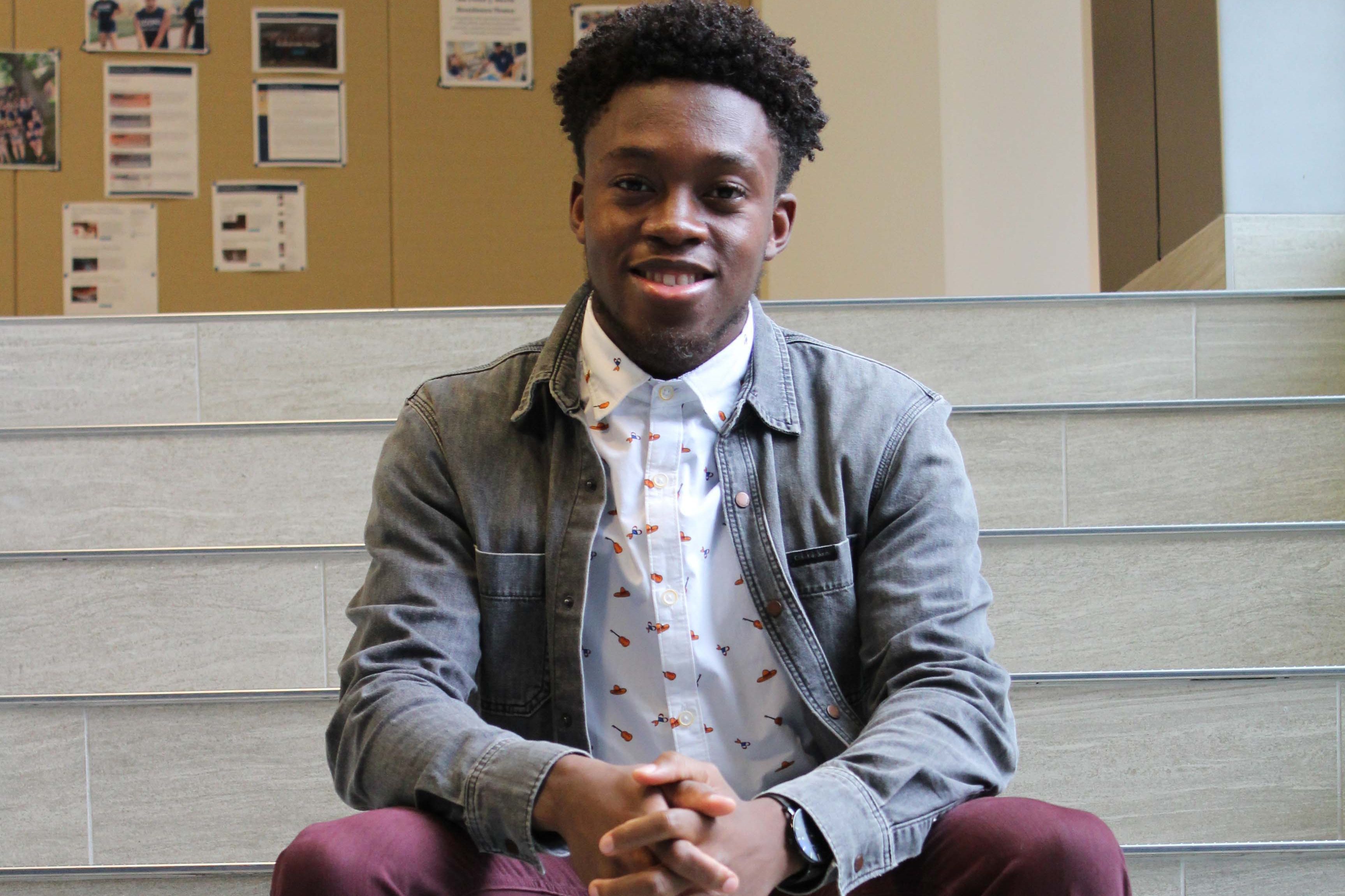Sometimes walking into a professor’s office hours can launch a student on an incredible research track. Pierre Fils, a first-year graduate student on the Ph.D. track in structural engineering at the University of Connecticut, did just that his junior year.
When he went to his design of steel structures professor, Arash Zaghi’s, office, Fils was immediately intrigued by the research Zaghi was doing in structural engineering.
“I went in thinking I would just talk about the class, but I left with an unofficial mentor,” Fils says.
Zaghi, along with Sarira Motaref, assistant professor in residence, is indeed now Fils’ mentor for his Ph.D. work.
Fils is studying the structure of homes in Haiti. He hopes to determine how they could be built to be more resistant to earthquakes like the catastrophe in 2010 that brought down hundreds of thousands of buildings, displacing millions of survivors.
Fils got his start in research early on by utilizing the connections available to undergrads at UConn. As a member of the EcoHouse learning community, he was able to see first-hand what research looks like.
“I kind of had this perception that researchers were a little weird, but once I got to know Professor (Richard) Parnas (faculty director of EcoHouse), I got to see what a cool person he was,” Fils says. “That was my introduction to research and I thought ‘this is cool’.”
During the summer of his freshman year, Fils received a McNair fellowship to pursue research working with molecular and cell biology assistant professor Jonathan Klassen studying the symbiotic relationship between ants and various fungi.
“I was still interested in research, but I was looking for something that would be more my niche,” Fils says.
In the summer after his junior year, Fils found a project that made him realize how perfect and exciting research is for him. He worked at the Climate Change Science Institute at Oak Ridge National Laboratory in Knoxville, Tennessee studying climate-impacted buildings. More specifically his post was “Assessing the optimality of ASHRAE climate zones using high resolution meteorological data sets.”
“That opportunity completely flipped the switch for me when it came to research,” Fils says. “I was engaged in the idea of ‘let’s learn something new, let’s create some new knowledge and let’s figure out how it is that we can do these things that nobody knows about’.”
Fils credits his learning communities (EcoHouse and ScHOLA2RS House), the Louis Stokes Alliance for Minority Participation (LSAMP) and being a Student Support Services (SSS) student for the success that he has experienced thus far.
“I would like to attribute my growth to the many connections I have made here at UConn,” Fils says. “They’ve really pushed me to go beyond my comfort zone and to find other opportunities and allow magic to happen.”
Students who don’t know where to start getting involved with research can begin making connections at the Research Connections event on Oct. 17 from 5:30 – 7:30 p.m. in Werth Tower. The event is hosted by some of the same learning communities that Fils credits with helping him forge his path into research, along with the Office of Undergraduate Research. The event is open to all students. First and second year students are particularly encouraged to attend.
A list of researchers who will be at the event can be found on the Research Connections website. The fields that will be represented at the event span from animal science to chemistry to sociology to music and art history.
Fils encourages any students who want to get involved in research to contact professors and find a mentor to help them get where they want to be.
“Undergraduate research is so important, especially if you want to go to grad school. (You’ll be) showing them that you already have the experience and that you can work independently,” Fils says. “You don’t need to know all the answers to the questions, or even the right questions for that matter, so long as you’re willing to learn.”



